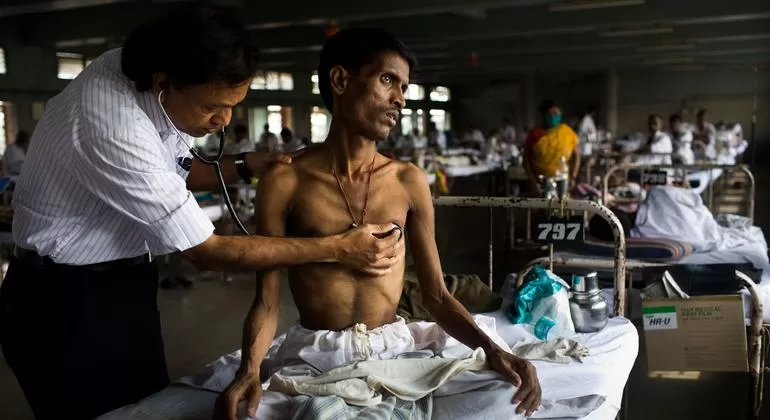Tuberculosis (TB) has long been recognized as a disease of poverty, yet most TB research does not measure poverty in a meaningful way. A new review published in BMC Global and Public Health explores existing methods for assessing socioeconomic status in TB studies and highlights their limitations. The authors call for better, standardized poverty metrics to improve research and policy effectiveness.
Led by researchers from Boston University Chobanian & Avedisian School of Medicine, Brown University, and Oxford University, the review examines various ways poverty has been measured in TB studies, including income-based measures, wealth indices, and multidimensional poverty indices (MPIs). The findings reveal that many commonly used tools fail to capture critical aspects of deprivation relevant to TB risk and treatment, such as food insecurity, overcrowded housing, and access to healthcare.
“Poverty isn’t just background context—it’s central to understanding who develops TB and who struggles with treatment,” says corresponding author Dr. Pranay Sinha, assistant professor of medicine at Boston University. “Yet, many TB studies rely on outdated or oversimplified measures of socioeconomic status, limiting what we can learn and how we respond.”
As part of their review, the researchers assessed how frequently observational TB studies accounted for poverty and found that of the 100 most recently published observational TB studies, nearly 70% did not include any measure of socioeconomic status. According to the authors, this lack of measurement can lead to misinterpretations of TB risk factors and policies that fail to reach the most vulnerable populations.
“If we don’t measure deprivation well, we can’t address it effectively,” said co-first author Chelsie Cintron, a third-year doctoral student at Brown University and senior research study coordinator at Boston Medical Center. “We found that most TB research does not include even basic socioeconomic data. That’s a missed opportunity because poverty affects every stage of the TB journey—from exposure to treatment outcomes.”
The researchers argue that adopting tools like the global multidimensional poverty index—which has been refined and applied in various contexts by co-senior author Jakob Dirksen, a research and policy officer at the Oxford Poverty and Human Development Initiative—could lead to more targeted interventions and stronger policy recommendations.
Disclaimer: This article is based on findings from the study “Enriching tuberculosis research by measuring poverty better: a perspective” by Chelsie Cintron et al., published in BMC Global and Public Health (2025). The content is for informational purposes only and does not constitute medical or policy advice.











